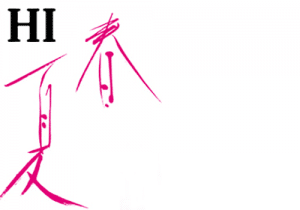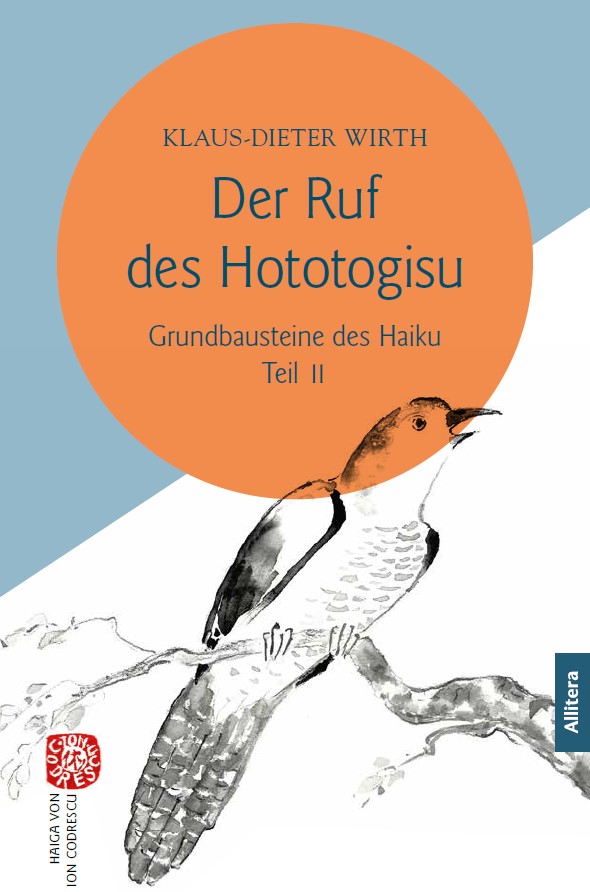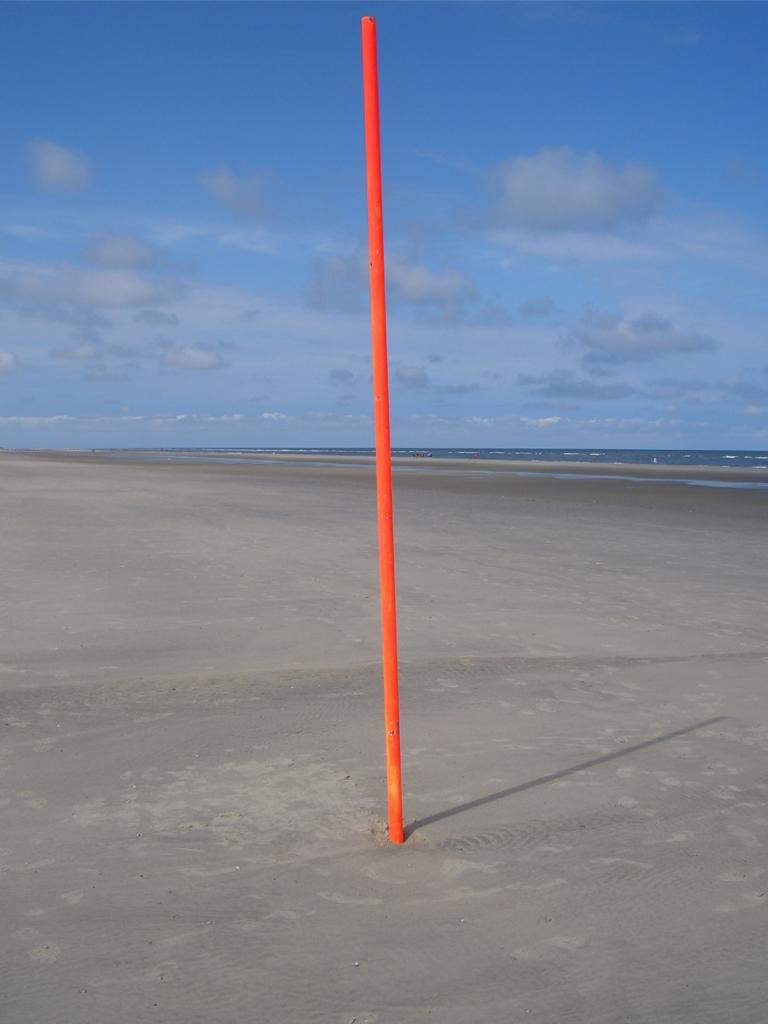Es wurden insgesamt 223 Haiku von 78 Autoren und 42 Tanka von 26 Autoren für diese Auswahl eingereicht.
Einsendeschluss war der 15. April 2018. Diese Texte wurden vor Beginn der Auswahl von mir anonymisiert.
Jedes Mitglied der DHG hat die Möglichkeit, eine Einsendung zu benennen, die bei Nichtberücksichtigung durch die Jury auf einer eigenen Mitgliederseite veröffentlicht werden soll.
Eingereicht werden können nur bisher unveröffentlichte Texte (gilt auch für Veröffentlichungen in Blogs, Foren, soziale Medien und Werkstätten etc.). Bitte keine Simultan-Einsendungen!
Bitte vorzugsweise die Haiku/Tanka in das Online-Formular auf der DHG-Webseite selbst eintragen:
deutschehaikugesellschaft.de/haiku-und-tanka-die-auswahl/
Ansonsten per Mail an: auswahlen@deutschehaikugesellschaft.de
Der nächste Einsendeschluss für die Haiku/Tanka-Auswahl ist der 15. Juli 2018.
Jeder Teilnehmer kann bis zu fünf Texte – davon drei Haiku – einreichen. Mit der Einsendung gibt der Autor das Einverständnis für eine mögliche Veröffentlichung in der Agenda 2019 der DHG sowie auf http://www.zugetextet.com/
Haiku-Auswahl der HTA
Die Jury bestand aus Thomas Berger, Reinhard Dellbrügge und Anke Holtz. Die Mitglieder der Auswahlgruppe reichten keine eigenen Texte ein.
Alle ausgewählten Texte – 51 Haiku – werden in alphabetischer Reihenfolge der Autorennamen veröffentlicht. Es werden bis zu maximal zwei Haiku pro Autor aufgenommen.
„Ein Haiku, das mich besonders anspricht“ – unter diesem Motto besteht für jedes Jurymitglied die Möglichkeit, bis zu drei Texte auszusuchen (noch anonymisiert), hier vorzustellen und zu kommentieren.
Da die Jury sich aus wechselnden Teilnehmern zusammensetzen soll, möchte ich an dieser Stelle ganz herzlich alle interessierten DHG Mitglieder einladen, als Jurymitglied bei kommenden Auswahl-Runden mitzuwirken.
Eleonore Nickolay
Ein Haiku, das mich besonders anspricht
Aphrodite –
die warme Haut
des MarmorsGerd Börner
Ein Dreizeiler, also wenige Worte nur, und doch mehreres, das Aufmerksamkeit hervorruft. Von einer olympischen Göttin ist die Rede – und das im 21. Jahrhundert! Von einer sympathischen Macht zudem: Aphrodite, die nach den Vorstellungen der Antike ihre schützende Hand über die Liebenden, besonders über die Hochzeitsnacht, hält, die sowohl für verführerischen Liebreiz als auch für Fortpflanzung steht. Weil die Griechen die Zeugung von Nachkommen in Verbindung mit der Fruchtbarkeit der Erde sahen, galt ihnen Aphrodite allgemein als Göttin der Vegetation, des blühenden Lebens.
So schwungvoll, so assoziationsreich ist bereits das erste Wort des Haiku. Und in der zweiten Zeile geht es gleich gewinnend weiter: warme Haut – ein wohliges Gefühl stellt sich beim Lesen ein. Langsam, also genussvoll lesend, stellt sich die Frage, wie das zusammenhängen mag: erst die uralte Göttin, jetzt die Wärme von Haut. Ach ja, natürlich: das pulsierende Geschehen zwischen Menschen und in der Natur im weitesten Sinne, über das Aphrodite wacht.
Aber nun Zeile drei: Von Marmor spricht sie, von kristallinem Gestein. Das ist ein überraschender Kontrast: die warme Haut des Marmors. Wieder bezieht das Kurzgedicht die Leser mit ein, lädt zum Spiel der Fantasie. Welcher Marmor? Vielleicht eine Skulptur, die Aphrodite darstellt? Wo wäre diese zu finden: in Griechenland, im Louvre oder in einem deutschen Museum? Ferner: Wodurch ist das Gestein warm geworden – durch Sonnenstrahlen, durch Berührung, durch Museumsluft? Schließlich die Haut des Marmors: Besitzt Marmor eine Haut? Das finde ich wunderbar: Der Gegensatz beinhaltet zugleich ein harmonisches Beieinander von Unbelebtem und Belebtem, von Carbonatgestein und Empfindung.
In alledem atmet dieses Haiku die Freiheit der Dichtung, die Lust an der Kreativität.
Ausgesucht und kommentiert von Thomas Berger
Kirchenruine
das Gewölbe
der HimmelFrank Dietrich
Ein Haiku, das sich durch seine Prägnanz und atmosphärische Dichte auszeichnet. Es beschreibt keinen Vorgang, keine Situation, sondern gibt den Umriss eines Bildes.
Die erste Zeile des Haiku stellt das Ausgangsobjekt vor: eine Kirchenruine. Die zweite Zeile fokussiert den Blick auf ihr Gewölbe. Der Überraschungseffekt nun der dritten Zeile besteht darin, dass sich dieses Gewölbe als gar nicht mehr vorhanden herausstellt, weil es längst durch den Himmel ersetzt worden ist.
Nach der Logik des Bildes werden die Außenwände des Kirchenschiffs noch größtenteils existieren und aufragen, denn ohne Wände ergäbe weder eine fehlende Gebäudedecke noch ihr Substitut einen Sinn. Wir begegnen hier einem Motiv, das durchaus der romantischen Ästhetik eines Caspar David Friedrich entspricht. Bezieht sich das Haiku vielleicht auf eine beeindruckende mittelalterliche Ruine, die frei in der Landschaft steht? Oder eher auf eine städtische Kirche, die im letzten Weltkrieg zerstört und nicht wieder aufgebaut wurde?
Wie dem auch sei, das durch unser Haiku vermittelte Bild setzt sofort eine Fülle es ergänzender Bilder, Assoziationen und Fragen frei: Auf welche Geschichte oder Geschichten verweist die Kirchenruine? Ist sie vielleicht als Symbol aufzufassen, das für die Fragilität und Vergänglichkeit menschlichen Strebens steht? Für den Aufstieg und Niedergang von Kulturen oder speziell des Christentums? Steht sie für ein Resümee oder eine Prognose?
Bevor sich nun jedoch die Gedanken zum Inhalt des Haiku spekulativ verselbstständigen, sollte es noch einmal genau in Augenschein genommen werden.
Die Betonung liegt auf den Worten „Gewölbe“ und „Himmel“, wobei letzteres das entscheidende Wort, den Schwerpunkt darstellt. Der Himmel, der an die Stelle des Kirchendaches tritt, ist für dieses möglicherweise ein vollwertiger, sogar mehr als vollwertiger Ersatz. Das Himmelsgewölbe als eigentliches, alle Dächer transzendierendes Dach – diese „spirituelle“ Deutung scheint mir der am nächsten liegende Ausgangspunkt für weitere vom Nachhall dieses Haiku inspirierte Gedanken zu sein.
Ausgesucht und kommentiert von Reinhard Dellbrügge
Ausgrabungen
unter dem Pflaster
liegt der StrandBirgit Heid
Erinnerungen kommen in mir auf, an diese Abende am Strand, als die Jugend noch nicht einmal begonnen hatte. Sitzend an einem Lagerfeuer, erfüllt von einem grenzenlosen Gefühl von Freiheit. Barfuß im Sand, träumten und planten wir uns ein Leben, in dem alles möglich war.
Heute, nach einigen Schichten gelebten Lebens, sehne ich mich oft nach einem Strand. Würde ich anfangen zu graben, freizulegen, all die sorgfältig verlegten Pflastersteine beiseite räumen, er wäre wieder da, der Strand.
Dieses Haiku, und die damit wieder ausgegrabenen Erinnerungen, werden mich eine Weile begleiten. Auch das macht für mich ein gelungenes Haiku aus.
Ausgesucht und kommentiert von Anke Holtz
Die Auswahl
Zwischen zwei Tropfen
einen Moment Stille
hörenEllen Althaus-Rojas
ein kinderfoto
sie hängt noch auf der klinke
die alte springschnurSylvia Bacher
vorhangwäsche
der morgenhimmel
unverhangenSylvia Bacher
beim Vortrag
über den Fußboden wandert
ein SonnenstrahlChrista Beau
Ostermarsch
der Alte
mit hängenden SchulternMartin Berner
Nach dem Halleluja Singen
eine große
StilleLidwina Bilgerig
auf dem Dachboden –
zwischen den Schellackplatten
Mutters SummenGerd Börner
Aphrodite –
die warme Haut
des MarmorsGerd Börner
Echo
der Berg bewahrt
kein GeheimnisStefanie Bucifal
Jahresringe
… der gefällte Baum
spricht mir vom LebenHorst-Oliver Buchholz
Wollmäuse im Schrank,
das Kleinkind freut sich über
sein neues Spielzeug.Renate Buddensiek
Donauquelle
glucksend läuft der Kleine
seiner Mutter davonBernadette Duncan
Kirchenruine
das Gewölbe
der HimmelFrank Dietrich
Dämmerstunde
die schnellen Flugschatten
der FledermäuseHildegard Dohrendorf
Boarding
In den Augen
TränenHans-Jürgen Göhrung
Unter dem Eis
der Karpfen
horchtGregor Graf
Morgenspaziergang
die Amsel flüchtet
zur rettenden HeckeKarola Groch
Trödelmarkt,
die Vergangenheit
holt mich einWolfgang Gründer
ich denke
keine Termine heute
also bin ichWolfgang Gründer
Auferstehung –
im Kloster schürt die Nonne
das OsterfeuerErika Hannig
den Weg suchend
im Frühnebel
singt die ShakuhachiClaus Hansson
nordische Kiesel –
ihr leises Lied
am WellensaumClaus Hansson
Winterlinge
noch angekettet die Stühle
im StraßencaféGabriele Hartmann
Ruderschläge
die Asymmetrie
ihres LächelnsGabriele Hartmann
Ausgrabungen
unter dem Pflaster
liegt der StrandBirgit Heid
Angeln am Bach
eine Weide kühlt
ihre ZweigeMartina Heinisch
Eiseninfusion
Sie nimmt sich etwas Leichtes
Zum Lesen mitDeborah Karl-Brandt
In der Wieskirche,
ein Japaner kniet nieder –
zum Fotografieren.Manfred Karlinger
Wetterwechsel
die beiden alten Schwestern
streiten wiederSilvia Kempen
Ihre Blicke
vom Laufband aus
ins GrünePetra Klingl
Balzgesang
Tauben auf dem Geländer
im BalanceaktMatteo Lieber
neue Lachfältchen –
sorgfältig poliere ich
meinen SchminkspiegelEva Limbach
gleißende Helle
das Pochen der Stille
hinter den LidernRamona Linke
Abschied
hülle mich ein
in seinen DuftRamona Linke
eingeflochten
in den Löwenzahnkranz
AussteigerträumeRuth Karoline Mieger
abbruchreif –
die Drossel im Garten
brütet wiederEleonore Nickolay
erste Schwalbe –
er verspricht mir
eine ReiseEleonore Nickolay
der Ruf der Schwingen
ein ziehender Kranich
zwischen mir und der WeltWolfgang Rödig
Bergsturz
ein Blick auf die Steine
unter unsSebastian Salie
gewittergrollen
eine hummel versteckt sich
im löwenmäulchenElisabeth Sofia Schlief
im stadtpark
am fuß der fontäne
duscht ein kormoranTheo Schmich
Lego Batman
fliegt vom Turm
der Enkel träumtHelga Schulz Blank
an der Scheunenwand
umgarnen sich zwei Schatten –
FrühlingsabendAngelica Seithe
nach langem Regen –
die Furchen der Felder
voll AbendrotAngelica Seithe
Wolke
als kleiner Drache
zerwehtHildegund Sell
mikroplastik –
die trauer
einer walmutterHelga Stania
am hellen Tag
sternenübersät –
der WaldbodenBrigitte ten Brink
Frühlingsboten
neue Sorten am Fenster
des EiscafésFriedrich Winzer
Bodennebel
Rinder grasen
im NichtsKlaus-Dieter Wirth
Tanka-Auswahl der HTA
Tony Böhle und Silvia Kempen wählten ein Tanka aus.
„Ein Tanka, das mich besonders anspricht“ – unter diesem Motto werden Texte vorgestellt und kommentiert.
Ein Tanka, das mich besonders anspricht
die Freundin ausgespannt
mir ist als hätte er
alle wilden Pferde
der Erde
auf einmal gezähmtFrank Dietrich
Ein Tanka wie das obenstehende gehört zu jener Gruppe, die polarisieren, die gleich beim ersten Lesen Begeisterung oder Kopfschütteln hervorrufen. Mit einer durchaus humoristischen wie auch ernsten Note lässt uns der Autor an seiner Gedankenwelt teilhaben.
Mit der Situation, dass einem der Partner oder die Partnerin ausgespannt wird, hat der eine oder andere schon Bekanntschaft machen müssen. Überraschend ist hier jedoch die distanzierte, fast bewundernd scheinen Betrachtung (mir ist als hätte er / alle wilden Pferde / der Erde / auf einmal gezähmt) des Geschehenen. Diese Darstellung hat für den Leser durchaus etwas Verstörendes an sich. Distanzierung und Staunen statt Wut und Trauer über die ausgespannte Freundin? Dazu formuliert in diesem leicht fließenden Ton, der locker dahingaloppiert. Es scheint, das lyrische Ich sähe hier eine Art von sportlichem Wettkampf, was wohl für den Charakter der zerbrochenen Beziehung bezeichnend ist.
Beeindruckend ist die ungewöhnliche Metaphorik: den Vergleich der Verflossenen nicht nur mit einem wilden, störrischen Pferd, sondern allen wilden Pferden der Erde auf einmal! Der Blick auf die Freundin, die nun ihren Pferdeflüsterer gefunden zu haben scheint, ist witzig und wirft auch einen kritischen Blick auf den Verfasser selbst, der sich wohl nicht auf das Zähmen seiner besseren Hälfte verstanden hat oder es gar nicht ernsthaft versuchte. Sie war wohl einfach zu ungestüm und stark für ihn. Auch die Formulierung „ausspannen“ hat ja durchaus etwas mit einem Pferdewagen zu tun.
Ausgesucht und kommentiert von Tony Böhle







